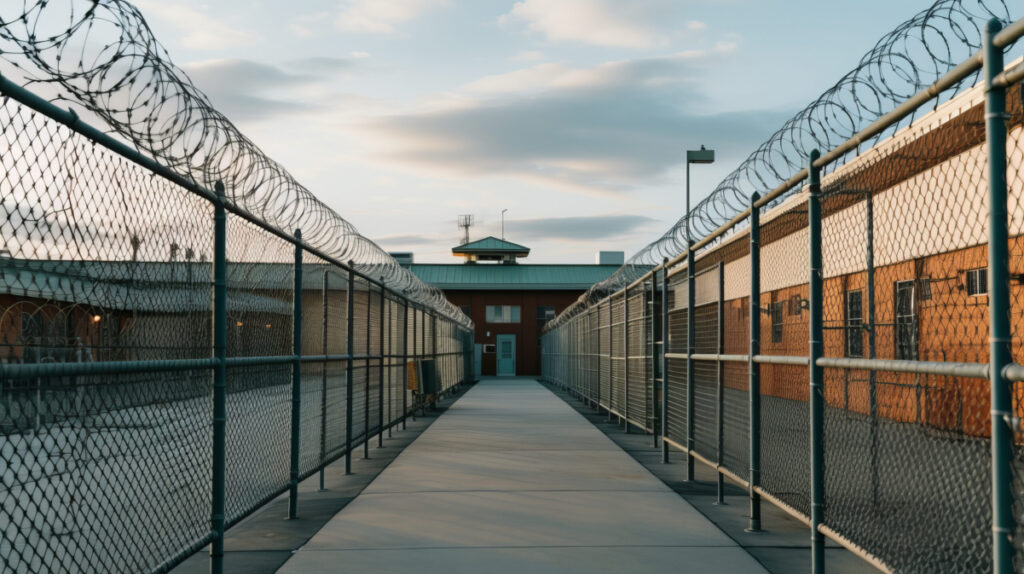“What has most struck me about these people are the everyday battles they face to undergo medical and mental health treatment during their time in prison.”
I was nervous the first time I walked into prison. Hearing the jangling of heavy metal keys and the bang of the secure doors as I made my way through the walkways was incredibly unnerving. The feeling of being caged and trapped was overwhelming.
Then, there were the prisoners. On that first day, I had to walk past a large group of green-clad men, many tattooed and, admittedly, rather scary looking. They knew what they had to do as we walked past: they lined up on either side of the walkway as we made our way through. I made eye contact with a few, and they smiled and nodded politely, however it was still intimidating.
I’m not a prisoner. I work with Green Fox Training Studio, and my perception of prison has altered dramatically since I started this job. I am now on a first-name basis with those big, scary prisoners I saw on my first day, and I have learnt a lot about their backgrounds, their families, their personalities and their hopes for the future. I have discovered that they are mere human beings. Most are genuinely sorry for their crimes, and they hope to make changes to their lives so they don’t end up back inside again.
What has most struck me about these people are the everyday battles they face to undergo medical and mental health treatment during their time in prison. There is a severe overcrowding problem, teamed with not enough medical staff and funding, and this results in an enormous strain to the entire system.
“They live by a strict triage system, meaning if they’re not suicidal, they are pushed to the back of the queue.”
Ben* is not new to prison. It has been a revolving door for him since he completed high school. Despite his long hair and tattoos, Ben is not your typical inmate. He has the handwriting of a little old lady, cursive letters neatly scrawled across a page, perfect spelling and grammar of which any teacher of English would be proud. Ben was the top of his class in year 12, and went on to become a qualified tradesman soon after. But his book smarts soon turned to street smarts when he fell in with the wrong crowd and ice began to take over his life.
It wasn’t long before he’d lost his job, his family had disowned him and the only people he had left in his life were those who had introduced him to the drugs in the first place. He soon began dealing, as this was his only source of income, and this proved to be his ultimate downfall.
Ben says the limitations on health services available have been the most difficult part of his time in prison, and he believes barriers to accessing support services on release is the major cause of the ever-increasing re-offending rate.
“As soon as you go in, you’ll most likely be returning to custody at some point,” he said. “I’ve been in almost every prison in Queensland, and I know so many others who have done the same. Once you get out, it’s really hard to stay out.”
In my opinion, there are two major things that the correctional system badly needs: meaningful education and specialised mental health support. While correctional and medical staff are doing their very best to serve the prison population, the scarcity of appointment availability and access to mental health support services is difficult for prisoners. They live by a strict triage system, meaning if they’re not suicidal, they are pushed to the back of the queue.
Limitations on funding for these services is based on the premise that prison is not a therapeutic environment. But why shouldn’t it be? Think about it: 99 percent of prisoners will one day be walking around in the community once again. They will be at our shopping centres, sports groups, and walking past our children’s playgrounds. Don’t we want them to get the help they need in the relative safety of incarceration, so we don’t have to live in fear of coming into contact with someone who may or may not be drug affected, violent or suffering a mental breakdown?
“99 percent of prisoners will one day be walking around in the community once again… don’t we want them to get the help they need in the relative safety of incarceration?”
The key to true rehabilitation is the provision of more effective and accessible mental health services and coping strategies being made available to all. We need to re-think the overall idea of rehabilitation; it must be less seen as a punishment, and more as a fighting chance to educate, support and encourage those who have never before had the opportunity to experience this kind of privilege.
*Prisoner’s name has been changed for legal reasons.
